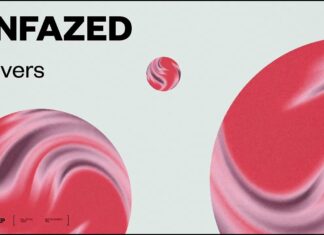
In today’s music landscape, independent artists are breaking barriers and reaching global audiences without traditional gatekeepers. Starting your own record label has become one of the most empowering moves you can make. Whether you’re a seasoned musician or an up-and-coming talent, owning your own label isn’t just a business decision—it’s a declaration of independence.
🎨 1. Creative Freedom Is Priceless
One of the most compelling reasons to start a record label is the ability to retain complete creative control. Major labels often have strict expectations about genre, image, release timelines, and even song content. When you run your own label, you decide the direction of your music. You choose the collaborations, the sound, the visuals, and when or how to release your work.
Being in the driver’s seat means you can remain true to your artistic vision without compromising to fit into a predetermined mold.
💿 2. Own Your Masters, Own Your Future
When you sign with a major label, they typically own your master recordings. This means they control how your music is used and they collect the lion’s share of profits. Starting your own label allows you to retain ownership of your masters, ensuring that you benefit directly from licensing deals, sync placements, streaming royalties, and more.
Owning your masters is not just about money—it’s about preserving your legacy and securing long-term financial freedom.
🔥 3. Build an Authentic Brand
Running your own label gives you the power to shape your brand from the ground up. You can develop a cohesive identity that reflects your values, your community, and your audience. This can extend beyond your music to merchandise, visuals, social media presence, and even the artists you choose to sign under your label.
An authentic brand resonates more deeply with fans and creates lasting loyalty.
💸 4. Diversify Your Revenue Streams
By establishing a record label, you open the door to multiple income opportunities beyond your own music. You can sign and develop other artists, release compilations, license music for film and TV, and even venture into publishing or sync services. These additional revenue streams can provide financial stability and support long-term sustainability in an unpredictable industry.
📅 5. Control Your Release Strategy
One of the biggest frustrations for artists signed to major labels is delayed or poorly timed releases. When you control your label, you set your own schedule. Want to drop a surprise EP next week? You can. Prefer to build a year-long campaign around a concept album? No one can stop you.
Flexibility in release strategy is essential in today’s fast-moving digital landscape.
📚 6. Learn the Business Side of Music
Starting a label forces you to understand the business mechanics that drive the music industry—contracts, royalties, distribution, marketing, and more. This knowledge is invaluable and can protect you from exploitation while also positioning you as a leader in your space.
It might sound daunting, but with today’s resources, learning the business side is more accessible than ever.
🏗️ 7. You’re Building Equity, Not Just Hype
When you put your music out under someone else’s label, you’re building their brand—even if your name is front and center. With your own label, every success you achieve builds equity in a business that you own. Over time, this can become a valuable asset, capable of generating income even beyond your active music career.
🚀 Conclusion: Start Your Label, Build Your Legacy
Starting a record label isn’t just a savvy career move—it’s a revolutionary act of ownership in a system that often favors control over creativity. It requires effort, planning, and a willingness to learn, but the rewards are profound. By taking control of your music career, you’re not just creating songs—you’re building a legacy.























 🔥 Limited Time: Get 55% OFF All Plans - Ends in:
🔥 Limited Time: Get 55% OFF All Plans - Ends in: